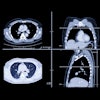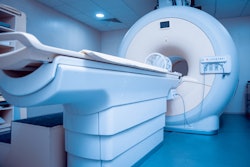The U.S. Food and Drug Administration (FDA) should ideally review manufacturers' plans for enabling clinical site-level validation of AI-enabled device software functions (AI-DSF), the American College of Radiology (ACR) recommended in comments on FDA's AI lifecycle management draft guidance.
ACR submitted comments April 7, writing in five general recommendations and at least eight specific recommendations for the FDA to take into consideration with FDA-2024-D-4488 Artificial Intelligence-Enabled Device Software Functions: Lifecycle Management and Marketing Submission Recommendations; Draft Guidance for Industry and Food and Drug Administration Staff. The FDA published its draft guidance January 7.
AI-DSF, for example, may vary across clinical settings due to variations in workflow, systems/devices, and patient demographics," ACR Chief Executive Officer Dana Smetherman, MD, noted in ACR's comments. "Typically, clinical sites must validate AI-DSF accuracy and effectiveness prior to device deployment and medical use."
The five-page document further discusses information that manufacturers should share with FDA reviewers and other relevant stakeholders, including physicians and practices, to help them evaluate and monitor AI tools’ safety and effectiveness.
With its comments, ACR addressed and clarified risk management approaches throughout the total product life cycle of AI-enabled medical devices, including radiology AI.
The full document is available at the ACR, here.



















